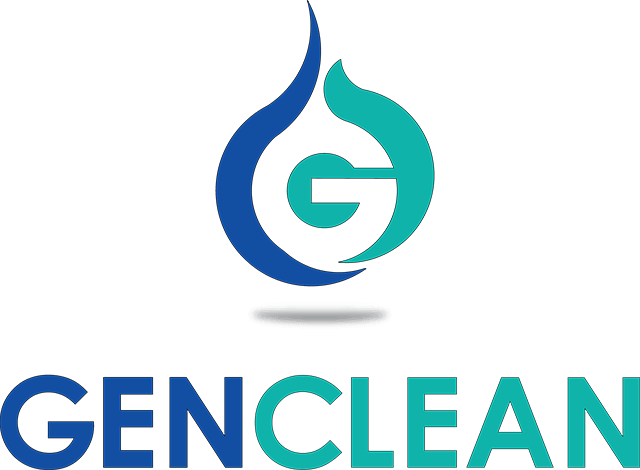While chlorine continues to be a popular choice for water treatment, many people are beginning to question if chlorine is the best option.
Chlorine and Genclean are two different types of water purification solutions. Chlorine is a chemical that oxidizes bacteria by breaking down its components, whereas Genclean utilizes an advanced oxidation process to do the same thing.
In this article, we will explore both Chlorine and Genclean‘s benefits and disadvantages so you can make an informed decision about which type of water treatment is better for your needs.
What is Chlorine?
Chlorine has been used as a disinfectant for over 200 years and continues to be popular for water treatment all over the world. It is an exceptionally reactive and strong oxidizing agent that is dissolved in water. When chlorine reacts with other elements, it creates a number of byproducts including hydrogen chloride and hypochlorous acid.
Chlorine is used for an extensive range of consumer products and it is very common in most household cleaning products, such as chlorine-based bleaches, cleaning supplies, and disinfectants. Diluted chlorine is relatively safe for humans to use (although chlorine gas should never be inhaled), but elemental chlorine at high concentrations is severely toxic and poisonous for most living organisms.
Use of Chlorine in Water Treatment
When chlorine is used for water purification, it oxidizes bacteria by breaking them down. Chlorine can also break down other impurities that are present in the water, including volatile organic compounds (VOC) and pesticides.

What are the Benefits of Chlorine?
- Chlorine is a popular choice because it is effective at killing most types of pathogens in water.
- Chlorine also has the ability to kill bacteria, viruses, and some other pathogens even when temperatures are low.
- Common and typically easy to source out.
What are the Disadvantages of Chlorine?
- When chlorine reacts with organic material in the process of disinfection, it can create a number of carcinogenic byproducts including trihalomethanes (THMs). THMs have been linked to various adverse health effects such as cancer of the colon and bladder.
- Chlorine is effective at destroying most bacteria, viruses and other pathogens in the water but it does not kill all types of pathogens including parasites and cysts such as cryptosporidium, a parasite that causes diarrhea.
- Chlorine can be very harmful to both animals and plants.
- Chlorine is a harsh chemical that can have negative effects on skin and hair when it comes in contact with them – chlorine strips away the natural oils found on your body, leaving you feeling dry.
- It is not very stable. It loses 10-15% of its disinfection capability every month after its production.
What is Genclean?
Genclean is a NSF certified liquid advanced oxidation disinfection solution. Its unique chemistry creates reactive oxygen and hydroxyl radical molecules to break down bacteria and other pathogens in a water source. These reactive oxygen and hydroxyl molecules provide almost 3x the oxidation capability of chlorine with capabilities for residual disinfection for drinking water applications.
Use of Genclean in Water Treatment
Genclean’s technology, which employs a non-toxic, high-performance oxidation method for purifying big bodies of water. It is available in a liquid form containing minerals chelated with oxygen stabilized in an aqueous water solution. It’s also an effective tertiary wastewater treatment solution for businesses and wastewater utilities that need highly efficient disinfection and sanitation capabilities.
Genclean solutions can be fed into a water source using a chemical feed pump system with an integrated ORP controller for the treatment of drinking water or wastewater.
The Genclean technology is typically utilized in the third stage of water oxidation and disinfection.
What are the Benefits of Genclean?
- Genclean is more environmentally friendly
- It does not produce harmful byproducts like trihalomethanes (THM’s) upon interaction with organic compounds.
- Pathogens cannot create resistance
- Product strength stability – minimal loss of strength over time
- Less corrosive and is effective over a wider pH range
- Provides over 2.8 times the oxidation capability of chlorine and almost 1.5 times the oxidation capability of ozone.
- Can provide residual disinfection capability for drinking water disinfection
What are the Disadvantages of Genclean?
- It is typically more expensive than chlorine
- It is classified as an oxidant, therefore it must be shipped with HAZMAT registration
- Genclean technology is corrosive, albeit not as corrosive as chlorine

Chlorine VS. Genclean: Which is Better?
Clearly, there are many benefits and disadvantages associated with both types of water treatment. It’s true that chlorine has been around for much longer than Genclean, therefore people are more familiar with it than the new treatment solution. On the other hand, chlorine carries many potential risks and harmful effects towards both humans and the environment.
If chlorine is not a good choice because of chlorine gas exposure or its reaction with organic compounds, then Genclean is definitely a better, wholesome alternative.
Ultimately, Chlorine and Genclean are two different types of water treatment solutions that have their own unique benefits and disadvantages—to determine which one is better depends on your immediate and long run disinfection needs.
The Genclean Treatment: Creating A Cleaner World
Genesis Water Technologies is the award-winning US-based company that provides water and wastewater reuse solutions to many industries and communities. Genclean is a division of this company.
We specialize in wastewater treatment solutions that have been certified by the National Sanitation Foundation (NSF) for industrial, commercial, governmental, and non-governmental entities.
Genclean Treatment products are being used by a wide range of industries including water utilities, commercial/industrial facilities, hotels/resorts, water parks/aquatic centers, and the food and beverage industries. To learn more about our sustainable and cutting-edge water treatment solutions, contact us today.

